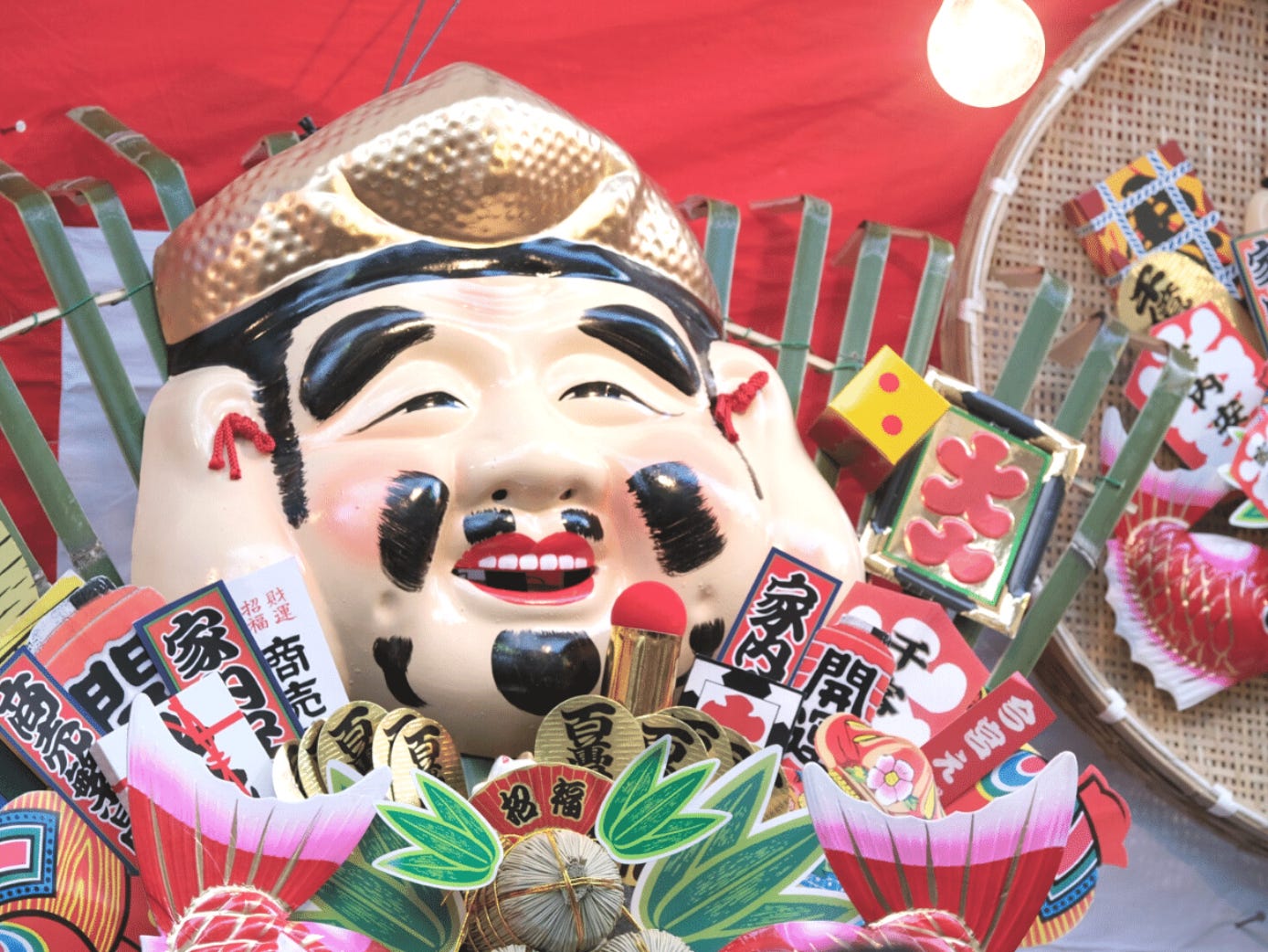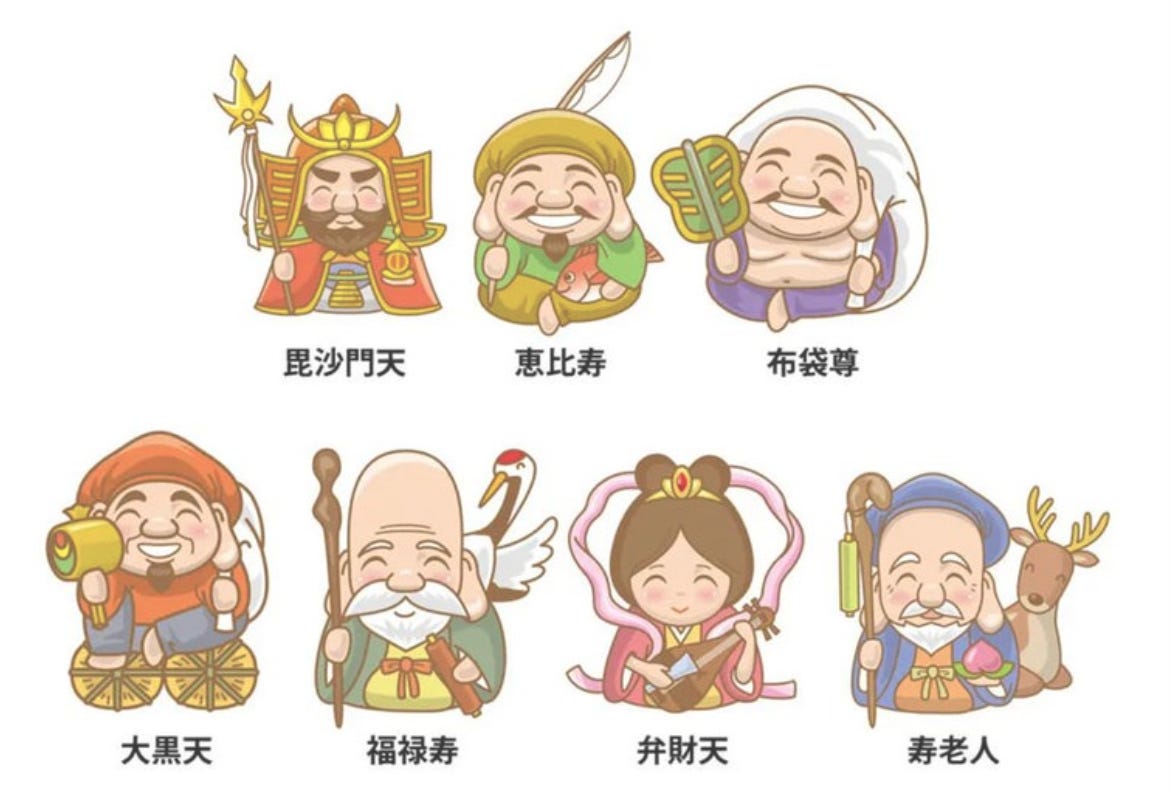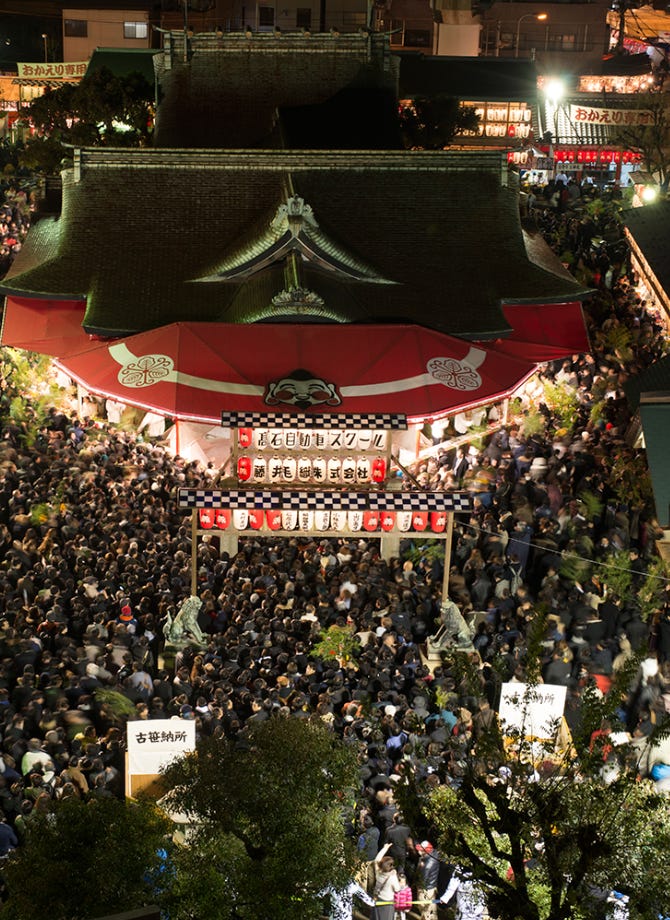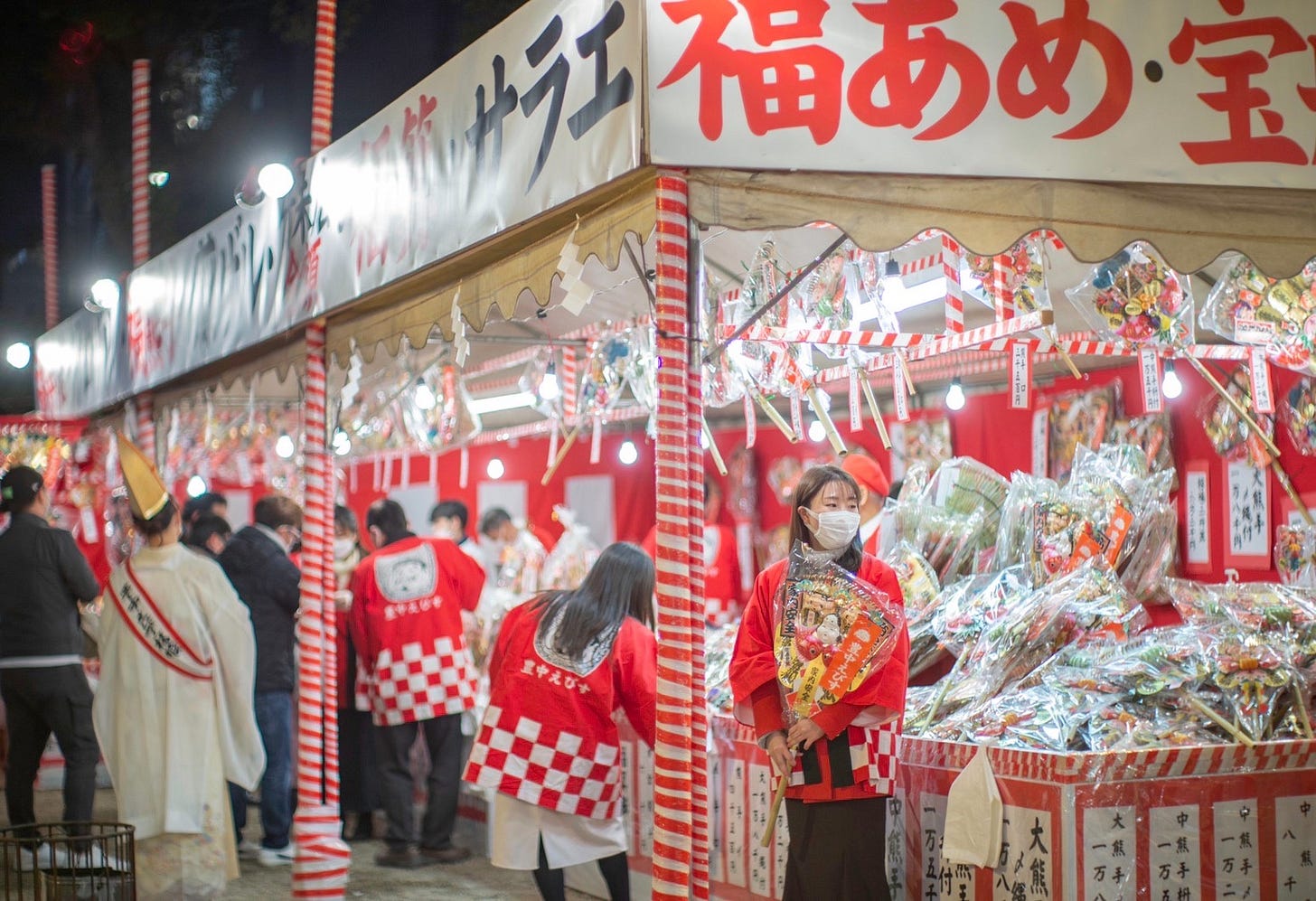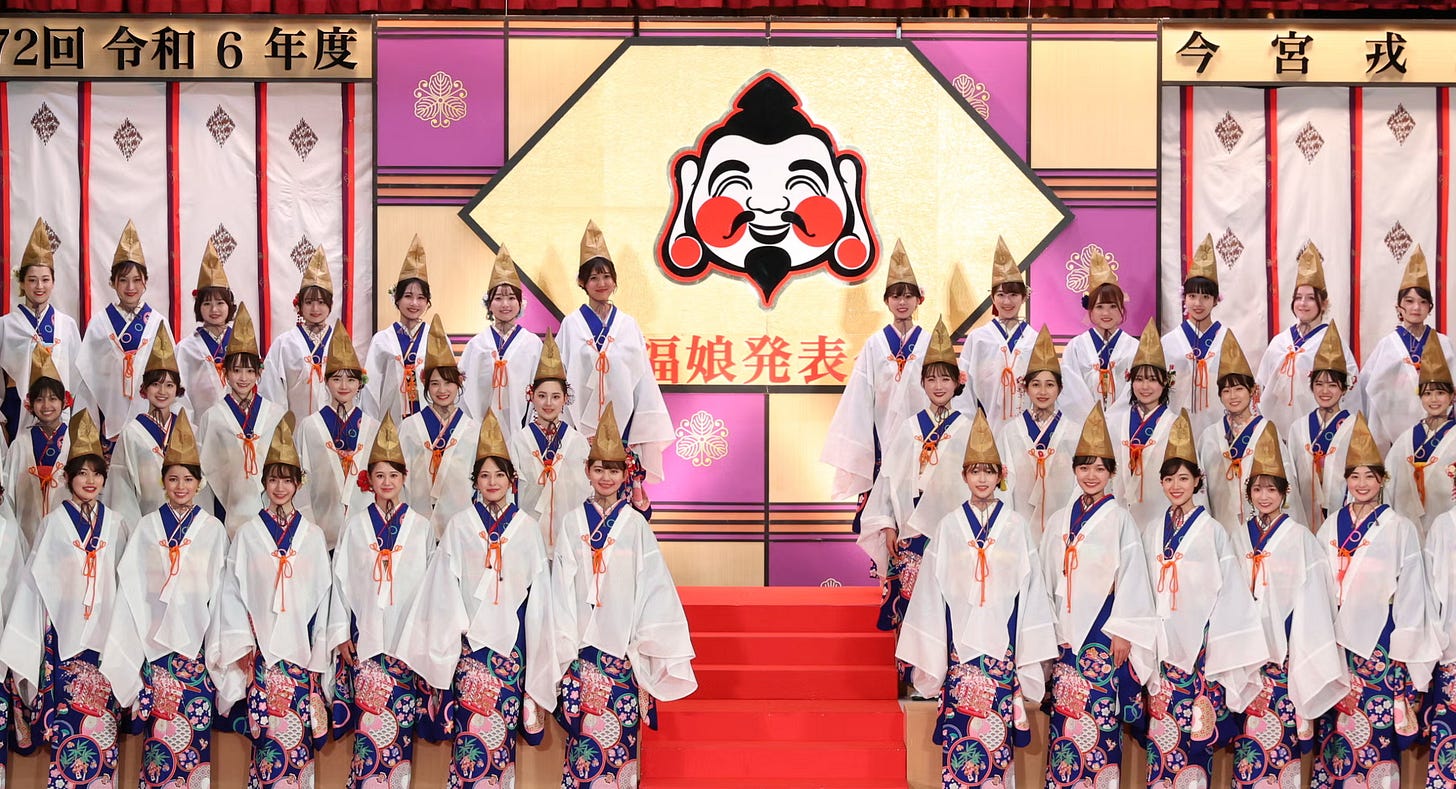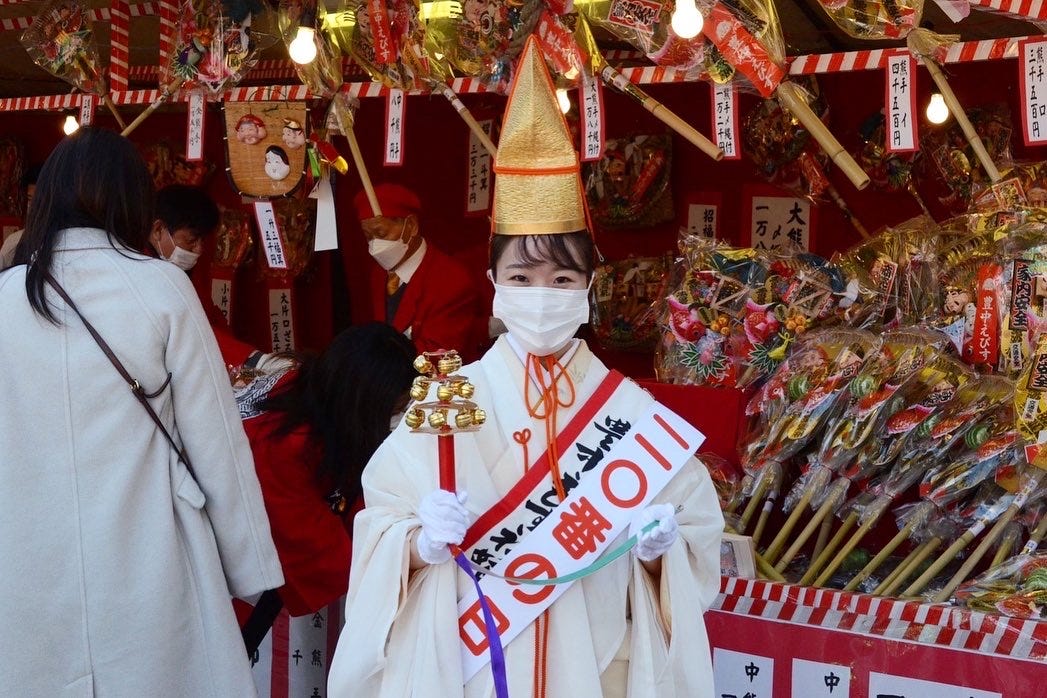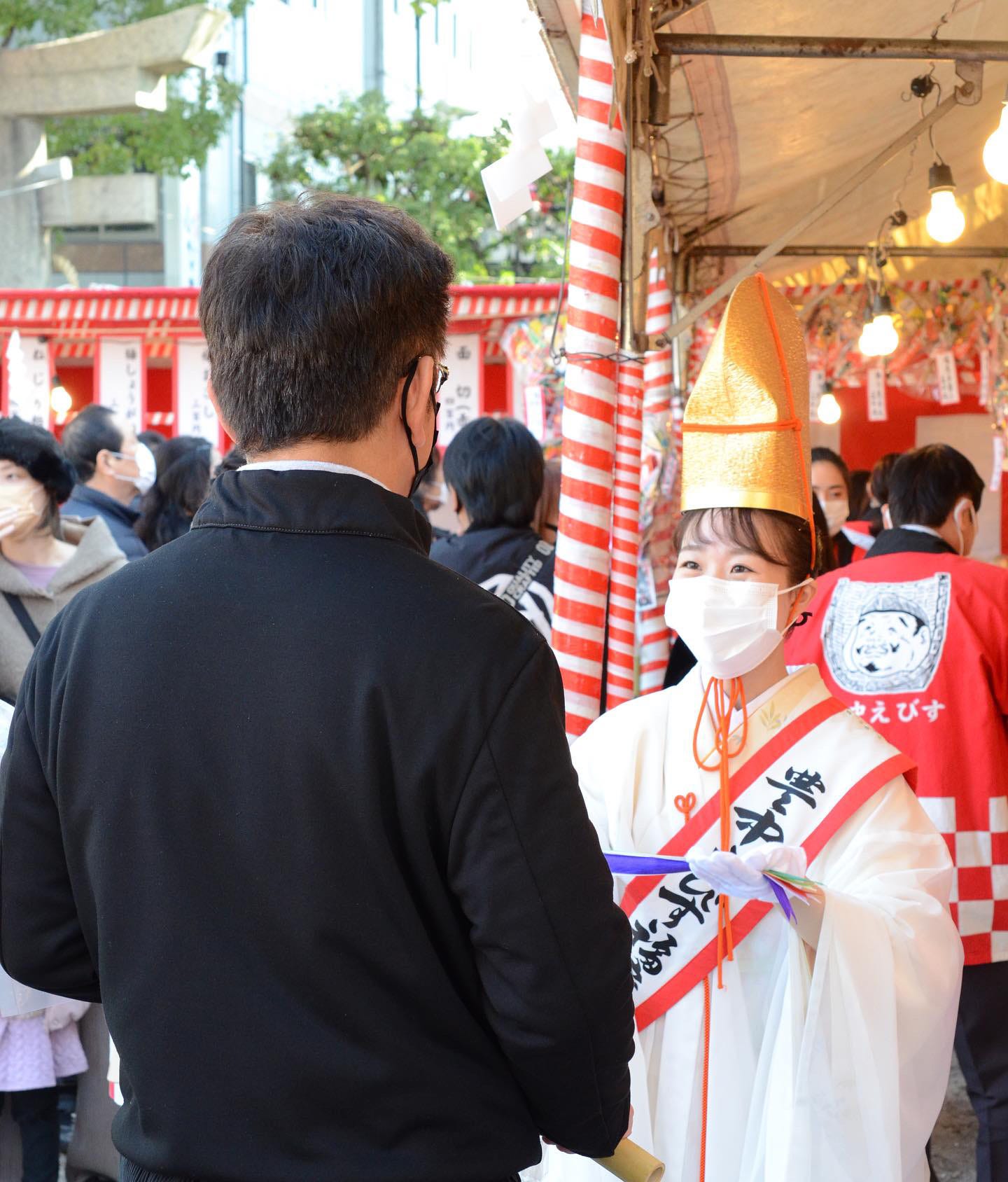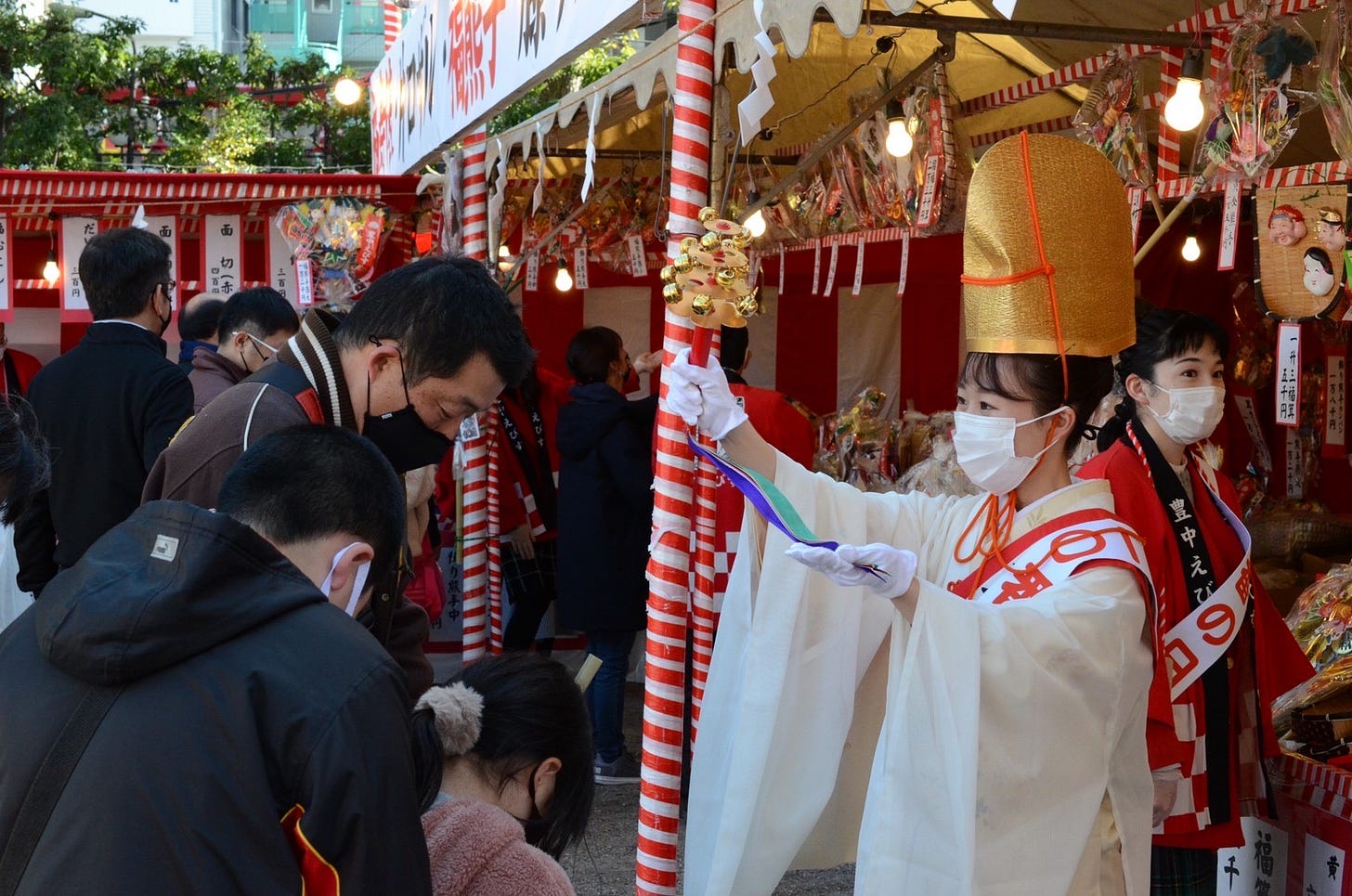Tokaebisu: A Unique Japanese Tradition of Health, Prosperity, and Reflection
Exploring the History, Culture, and My Experience as a Fukumusume
This time of year is special in Japan, especially in the western regions (more specifically, in the Kansai region), where Tokaebisu festival—often called “Ebessan” by locals—takes place. It’s a time when people gather to honor Ebisu, the god of prosperity, health, and fortune.
Three years ago, I had the opportunity to participate in this tradition of Tokaebisu as a Fukumusume, or “lucky daughter.” Becoming a Fukumusume was a childhood dream of mine. Growing up in western Japan, I always admired the Fukumusume at Tokaebisu festivals, seeing them as symbols of happiness and good fortune. So, in 2022, I decided to audition, knowing it would be a challenging process. Out of 800 applicants, I was chosen as one of the 30 Fukumusume after writing essays and having interviews.
Today, I’d love to share not only my experience but also the history and cultural significance of Tokaebisu, as well as how this festival reflects Japan’s traditions and mindset. And if you’re planning to visit Japan during this season next year, you might just get the chance to witness it all yourself!
The History of Tokaebisu
Tokaebisu is held annually from January 9th to January 11th in several shrines in western Japan, with major celebrations in cities like Osaka and Hyogo. This festival honors Ebisu, one of the Seven Gods of Fortune, who is revered as the deity of fishermen, merchants, and overall prosperity.
During Tokaebisu, people visit Ebisu shrines to pray for success in business, happiness in family, and good health for the year ahead. The atmosphere is lively and colorful, with food stalls, festive decorations, and crowds participating in rituals that have been passed down for centuries.
The central ritual involves offering bamboo branches (called "fuku-zasa") adorned with charms and ornaments. These branches are believed to bring luck and fortune to businesses and households.
The Tradition of Fukumusume
Fukumusume, or “lucky daughters,” are an iconic part of Tokaebisu. After a rigorous selection process, young women, typically aged between 18 and 24 and unmarried, are chosen to represent good fortune. Their role is to help spread Ebisu’s blessings to the visitors at the shrine.
My Experience as a Fukumusume
In 2022, my dream of becoming a Fukumusume came true.
I still vividly remember the excitement of putting on the traditional kimono and preparing for the festival. While the attire was heavy and tiring to wear for long hours, it was an honor to represent Ebisu and interact with so many visitors.
One of the most touching parts of the experience was seeing the joy on people’s faces when they approached us. Many came to make their wishes, often calling out to us with special greetings for luck and prosperity. It was humbling to be seen as an icon of happiness and hope during such an important event.
What Wishes Do People Make at Tokaebisu?
Visitors to Tokaebisu make a wide range of wishes. Business owners often pray for success and growth, while families might ask for happiness and health. Students and young professionals may wish for academic or career achievements.
Health is a common theme at Tokaebisu. Many people take this opportunity to reflect on their well-being and pray for a healthy year ahead for themselves and their loved ones.
How Tokaebisu Reflects Japanese Culture
One of the reasons Tokaebisu holds such significance is that it creates a moment for introspection. I think one of the most important aspects of this festival is that it gives everyone a chance to think about what truly matters in the coming year. It’s a time to pause and reflect, not only to make wishes but also to rethink our priorities and goals.
This culture of mindful reflection is deeply ingrained in Japanese traditions, which often emphasize balance, gratitude, and community. Festivals like Tokaebisu remind us of the importance of staying connected to these values.
Wishing for Good Health
Maybe now is your chance to reconsider your wishes for this year. As a final-year medical student, I believe health is something you can’t run away from. It’s the foundation that allows us to pursue all other dreams and aspirations.
As a previous Fukumusume, I wish all of you a year filled with great prosperity and happiness! And if you’re planning to visit Japan, why not experience the Tokaebisu festival in person? Held annually from January 9th to 11th in western Japan, it’s a perfect opportunity to immerse yourself in Japanese culture.
While you’re here, don’t forget that another way to stay healthy is to schedule a Ningen dock, a comprehensive health checkup offered in Japan. It’s a proactive way to ensure your well-being, and it aligns perfectly with the spirit of Tokaebisu—wishing for health and fortune.
I hope this glimpse into Tokaebisu and Fukumusume has inspired you to reflect on your own goals and dreams. May this year bring you everything you hope for and more!


